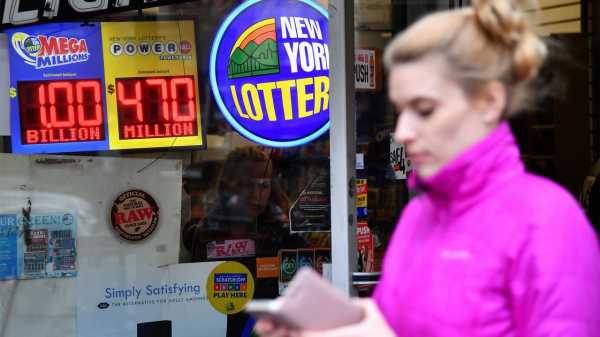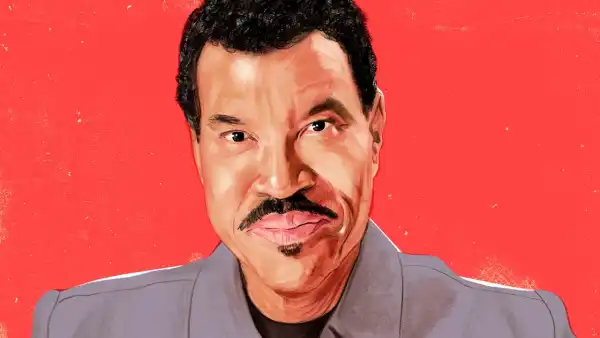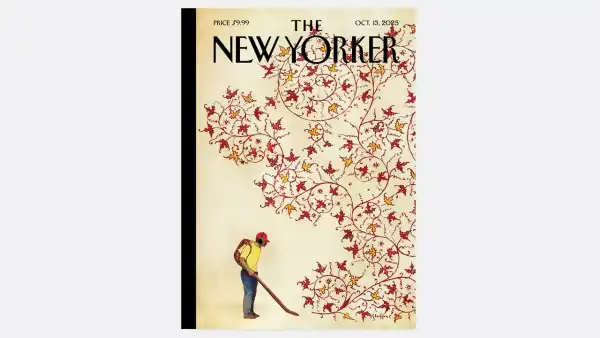
Televised lottery drawings, a strange and supple form of state-controlled entertainment, enter a new phrase this week, with the announcements of winning numbers for groaning jackpots in two blockbuster multi-jurisdictional games, Mega Millions and Powerball. Between the two, more than two billion dollars is up for grabs, as if the prizes had been adjusted for our era of grotesque income inequality. We expect, on Tuesday, that the Mega Millions presenter John Crow—an actor employed by the Georgia Lottery Corporation, televised live from the ABC affiliate in Atlanta—will greet his audience with a hearty “What’s up, America?” in a classic broadcasting register. His voice is a little nasal, in the way of a black standup comedian imitating an archetypal white guy, but mostly it is confident, assertive, and hard as a genial back-slap. His General American accent is clear and colorless, much like the containers in which the numbered balls tumble, transparency being the point of the production. The viewer has the sense of watching a slot machine by way of an interior surveillance camera, while led by the affable narration of a customer-service professional.
The basic media grammar of the lottery-draw show dates at least to the days of Pathé newsreels, when, in Paris, crowds packed the old Trocadéro Palace to watch fellows in lab coats turn cranks to mix lottery balls while a phalanx of auditors stood by to safeguard the results. Regular, televised state-lottery drawings began in the U.S. in the late nineteen-seventies. A journey down a YouTube rabbit hole illuminates the ambitions and anxieties attendant to the form. Other cultures allow a bit of banter in lottery presentations and build them out as entertainments. But Americans, slightly ashamed of our gambling and sometimes shy about vulgarity, are a little more circumspect, which has led to awkward stagecraft as producers seek to reconcile show-biz glitz with administrative probity. The inaugural airing of the Texas state-lottery drawing found an offscreen authority reciting numbers drawn from a gizmo overseen by a gentleman who was from either the security team or the accounting firm, and a woman who was either an accountant or a magician’s assistant exploring new opportunities. The Commonwealth of Pennsylvania, which directs lottery proceeds to programs for the elderly, has invited "senior-citizen witnesses" onto its set as chaperones.
Some state-lottery draws have abandoned television for the Web; some have discarded the tactile tumble of onscreen balls for the smooth and dull graphic presentation of digits randomly generated out of view. These are local affairs. In Massachusetts, a faceless and joyless announcer will begin the Mass Ca$h draughering by identifying himself simply as Jim, his anonymity seemingly guided by a whiff of puritanism. State games within Florida transpire in front of green-screened footage of the state’s natural landscapes and gleaming skylines, which cultivates the impression that the presenter will pivot to the winner and pitch a time-share investment. In New York, we have a folk hero named Yolanda Vega, who ranks with Cardi B and Rosie Perez as an elocutor of local language, as when she endows the word “four” with two sumptuous syllables.
The lottery games played nationwide require presenters to stand alone on sparkling sets and briskly dispense good cheer while the numbered balls jostle in their machines, seeming to flutter like butterflies in a giddy gut. The structure has scarcely varied since the début of Powerball, in 1992. The sets and the soundtrack keep evolving, yet they remain unfashionable. On Mega Millions, Crow speaks over horn-filled hold music, mostly cheerful, though with one or two bleats of blues in the anguish of alto sax. His Powerball counterpart, Laura Johnson, is similarly backed by brass, though it’s more of a cha-cha, which contributes to the feeling that she is calling bingo to a vast hall packed with vibrant retirees.
Last year, Johnson popped up in the Onion, in a short piece imagining her as the beholder of a cataclysmic omen. The headline of the blurb is “ ‘No, No, Dear God No,’ Mumbles Powerball Presenter After Drawing Pitch-Black Ball.” But doesn’t the fact of these gargantuan jackpots seem like a doomsday portent in itself? There is a dystopian tinge to the weight of the sums. Talk of Mega Millions—a circus on the theme of getting some bread—dominates chatter at the corner store, where it drowns out notice of newspaper headlines about plutocrats and plunder. A spoilsport might wonder aloud how many states now collect more revenue from lotteries than from corporate income tax. A skeptic might inquire how many schoolteachers, in states where lottery proceeds go toward education budgets, pay for their own supplies. Anyone might ask whether the extreme sizes of these prizes reflect, elsewhere in the economy, malignant growth.
On the Mega Millions draw show, Crow motors past such objections with growling confidence. The warm roar of his sign-off—“Play on, America!”—assures disappointed bettors that they are worthy aspirants, not poor fools who have volunteered to pay a tax. The phrase is a call to action: keep playing the numbers and dreaming the gilded dream, because the show must go on.
Sourse: newyorker.com






